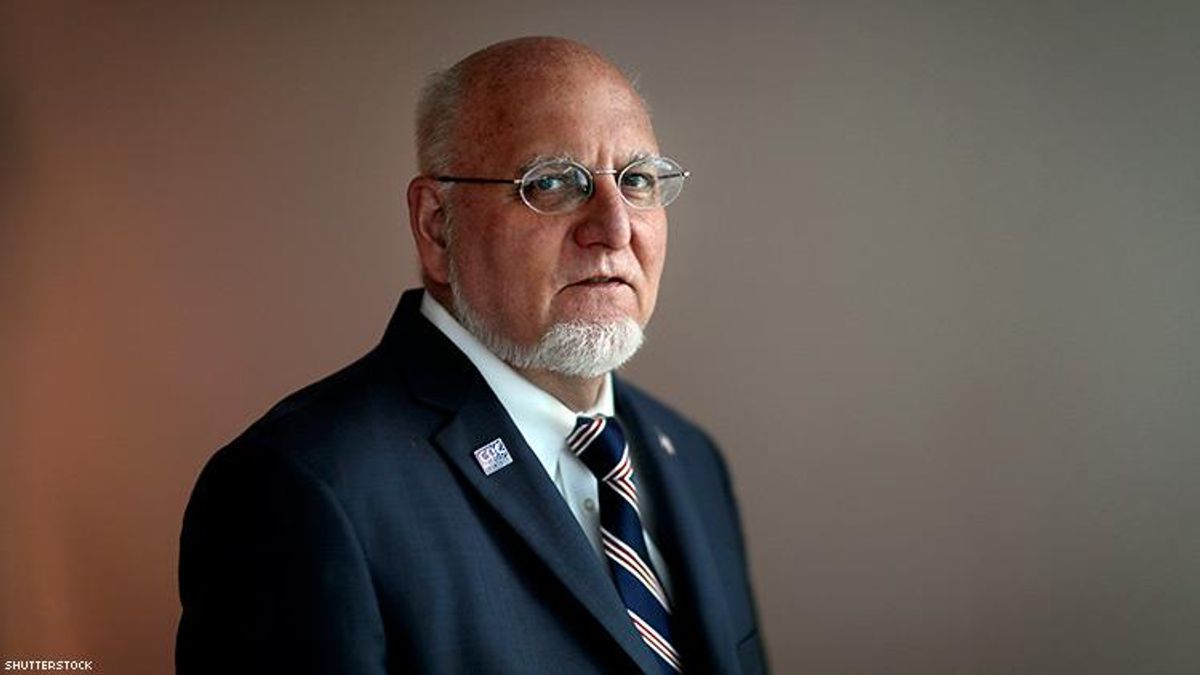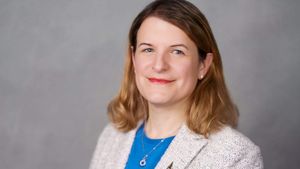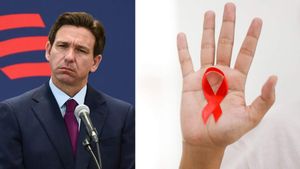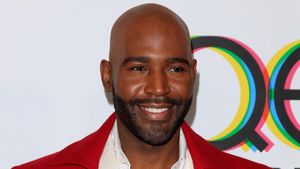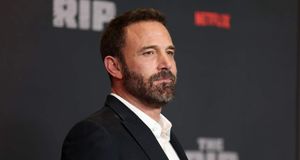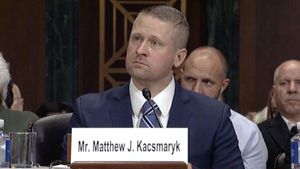Evangelical activist Shepherd Smith has spent more than three decades cultivating relationships with leading HIV researchers and policymakers to promote abstinence-only sex education. Those connections now could influence government programs and funding within the Trump administration.
Among the most prominent: Dr. Robert Redfield, director of the Centers for Disease Control and Prevention. Smith said he enthusiastically urged administration officials to pick his longtime friend and associate, who now oversees one of the agencies that fund the multibillion-dollar international prevention and treatment program known as the President’s Emergency Plan for AIDS Relief (PEPFAR).
And within the White House itself are certain aides the activist has known for years, as he acknowledged during a series of interviews with Kaiser Health News. They include Katy Talento, a leading conservative voice on health care policy, and staffers in Vice President Mike Pence’s office who court religious conservatives on a variety of issues.
Even Smith’s wife, who has had her own high-profile activism over the years, is working on abstinence efforts within the administration. Anita Smith was hired recently as a part-time PEPFAR consultant by one of the couple’s longtime allies.
“This is the new in crowd,” said Paul Zeitz, an expert on global HIV epidemic control who worked for the State Department from mid-2014 until last August. “These are the people who are likely to be influencing how we spend taxpayer money on HIV efforts for the rest of the administration.”
Such connections signal a resurgence of religious conservatives’ influence over health care issues well beyond abstinence education. Last year, President Donald Trump announced that PEPFAR must now follow the so-called Mexico City Policy, which bans foreign, non-governmental organizations from using their funds for abortion-related services such as counseling.
The origins of Shepherd Smith’s high-profile contacts are detailed in memos, letters and military documents in an archive of AIDS research records at the University of Michigan. KHN examined hundreds of pages there to help assess the Trump administration’s approach to health policy and HIV treatment and prevention.
While PEPFAR is credited with saving millions of lives in Africa and elsewhere, several of its programs, especially those encouraging abstinence, have been criticized by scientists and relief experts as ineffective and impractical.
In the late 1980s, Smith developed relationships with government scientists even as other religious leaders balked at the idea of getting involved in HIV prevention efforts. That included recruiting Redfield, at what was then Walter Reed Army Medical Center, to join the advisory board of the Smiths’ fledgling Americans for a Sound AIDS/HIV Policy. The now-defunct organization strongly supported abstinence education.
“We sought [the scientists] out because we thought they were doing the right thing,” the 73-year-old Smith told KHN. “It’s not rocket science. We figured out a plan for our message to become important.”
Redfield also served as chairman and an advisory board member of another organization that Smith and his wife later founded. He stepped down from Children’s AIDS Fund International, which also backs abstinence education, only to comply with government ethics rules after he joined the CDC in March.
In recent media interviews, the physician-researcher said he has rethought his opposition to promoting condom use in the fight against HIV. He elaborated on that in a statement in July to KHN, saying he supports programs that encourage people who are not sexually active to delay sex and have fewer partners — an approach hailed by conservative activists.
“We know that abstinence is the only 100 percent effective way to prevent HIV and other transmitted diseases,” he noted in the statement.
Anita Smith is now a consultant within PEPFAR to Deborah Birx, a physician and ambassador-at-large who oversees the program’s estimated $5 billion annual budget. Birx is also a former board member of Children’s AIDS Fund International and served until she was hired by the CDC in 2005, a PEPFAR spokesman said. (The organization received PEPFAR grants between 2004 and 2008 despite an early evaluation from experts who deemed it “not suitable for funding,” according to media reports at the time.)
Smith’s hiring earlier this year was part of a strategy to improve prevention programs aimed at preteen girls, including support for “decision-making around whether to delay, abstain or protect,” according to a statement from Birx’s office.
“The administration is trying to put sweeteners in there for religious conservatives,” said Heather Boonstra, director of public policy at the Guttmacher Institute, a nonprofit focused on reproductive health. “It’s not as if these concepts are a problem if they are included as part of a whole array of programs. The concern is that these changes are opening the door for a greater number of programs that focus solely on abstinence.”
Through her husband, Anita Smith declined to answer any questions. “My wife is an expert on these types of programs,” he said, “so it’s not surprising she would be asked to weigh in.” She remains president of the children’s AIDS organization, which is based in Sterling, Va. Shepherd Smith no longer has an official position there.
Birx’s statement explained her connection to the couple, noting that she became involved in the children’s organization through an annual Christmas event of gift-wrapping presents for families affected by HIV. “When they asked me to join their board, I did so to show my support for the concept of services to others in need,” she said.
Shepherd Smith’s alliances can be traced through the University of Michigan archive. It was set up by science writer Jon Cohen, whose 2001 book, “Shots in the Dark: The Wayward Search for an AIDS Vaccine,” examined what went wrong in the epidemic’s early years. According to a government transcript there, Smith sized up Redfield swiftly when they first met. “He was as happy to see us, as we were him,” Smith said in an interview with military investigators. Their relationship deepened as the activist and scientist rose in prominence, Smith’s letters to Walter Reed officials suggest.
Smith, who secured CDC dollars for Americans for a Sound AIDS/HIV Policy (ASAP) in the 1980s, regularly stopped by Walter Reed to see Redfield and others who joined the organization’s board, according to military records in the archive. Under Smith’s direction, ASAP touted Redfield’s vaccine research as being “the most important scientific advancement in the epidemic to date.” In turn, as ASAP chairman, Redfield called the group “the most effective AIDS/HIV organization I know” in its 1991 annual report.
The archive reveals that some Walter Reed scientists complained to Army officials about the organization’s possible influence with Redfield. The complaints triggered an inquiry into allegations that Smith was pressuring researchers to skew Redfield’s vaccine data to help secure congressional funding.
Though Redfield insisted he did not give Smith preferential treatment, a military investigator found that the researcher violated military rules and recommended the “close relationship” between Walter Reed and ASAP be “severed so there is not an appearance of endorsement or favoritism.” A separate inquiry concluded that Redfield had publicly overstated his data but cleared him of scientific misconduct charges.
In 1996, Redfield left the military and helped to establish the University of Maryland’s Institute of Human Virology.
To this day, Smith remains a fierce supporter. After controversy stirred over Redfield’s $375,000 salary — significantly more than previous CDC leaders earned — Smith told KHN the amount was well deserved. It ultimately was reduced to $209,700.
Smith describes himself as still pushing others hard for both information and action to stop the AIDS epidemic, but he demurred when asked how regularly he contacts administration officials, including the CDC director.
“I have no control over the guy,” Smith said when asked whether he expected Redfield to implement policy changes he supports. “I can only hope we’ll have a little more balance than we’ve seen in the last few years.”
KHN’s coverage of end-of-life and serious illness issues is supported in part by the Gordon and Betty Moore Foundation.
Kaiser Health News (KHN) is a national health policy news service. It is an editorially independent program of the Henry J. Kaiser Family Foundation which is not affiliated with Kaiser Permanente.
